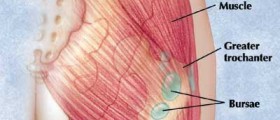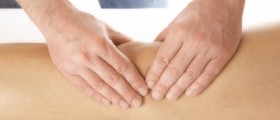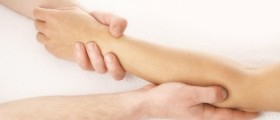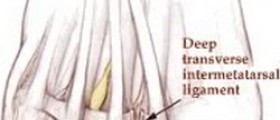
Dysplasia, osteoporosis, tendonitis and arthritis are the most common causes of the pain felt during walking activity, but the pain in question can be caused by several other factors as well. We will talk about this issue and the remedies you can use to make this problem go away. Sitting, position change, running and walking can provoke hip pain, which can occur due to many reasons. The treatment of this problem will greatly depend on the correct diagnosis, so see a doctor if you are having such problems. We will see which are the possible causes and which steps you can take to make this discomfort reduced.
Causes
Arthritis or joint inflammation is the most common cause but this problem can be corrected with proper treatment or surgery if everything else fails. Next possible cause is the hip bone fracture, which can happen after exerting strain on the hips, osteoporosis or an accident. Distance runners and other athletes are prone to this type of injury. Try to avoid the activity that leads to such injury if you are prone to it. Next possible cause is the bursa inflammation and it can be caused by an excessive pressure on the hip area, implants, scar tissue, underlying surgical wire, leg length differences, prolonged pressure on the hips repetitive movements and fall on the hip side. This problem is called trochanteric bursitis and it causes hip pain after walking. Overstretching or strain on the tendons or muscles located around the hips can cause the pain. This is a problem that can affect anyone, but athletes are most affected.The hips can become dislocated usually during the early stages of development or growth among infants. This problem is called dysplasia and it will cause arthritis in the later stage of life, although no pain will be present during childhood. Tendonitis is tendon inflammation that occurs due to repetitive strain or injury in the hip joints. It can affect any type of body, cause great pain and affect daily activities. Osteonecrosis is the name for inadequate blood flow to the bones and it can be developed due to bone pressure increase, injury, alcohol consumption, or use of steroids. Hips are mostly affected by this problem, which has greater chances of developing after organ transplantation or chemotherapy.
Treatment
The person with this problem needs to sleep a lot, but not on the affected hip. It is recommended to use cane or crutch if the pain is excessive. Also, wearing comfortable shoes that are light is recommended as well. Place the heat pads or ice pads on the affected area for 20 to 25 minutes and this surely reduces the pain. Stretch the tendons and muscles of the hips and try to reduce your weight as well. Use the physical therapy, which will make your joints strong and mobile again. See a rheumatologist because this issue can make your life hard since the weight of the body puts pressure on the hips. Lead a healthy life and you will avoid the hip pain.






-Symptoms,-Diagnosis,-Treatment_f_280x120.jpg)










Your thoughts on this
Loading...